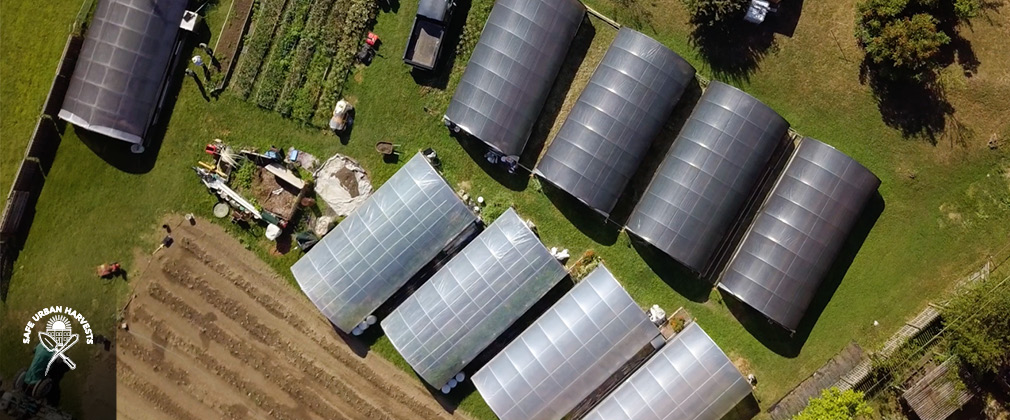Report: Community-driven study of metals in Baltimore City farms and gardens finds urban grown produce as safe as grocery stores and farmers markets
Jan 13, 2022

The Safe Urban Harvests study, a city-wide study of urban agriculture in Baltimore, investigated community-driven questions about the safety of urban soils, irrigation water, and urban-grown produce. Researchers found no reason to steer consumers away from urban-grown produce as compared to the same foods from grocery stores and farmers markets.
“In conversations with community partners, we learned urban growers often encountered negative perceptions about the safety of urban grown produce among consumers in Baltimore. Gathering real-world, Baltimore-specific data helped us figure out whether those assumptions were valid,” said principal investigator, Keeve Nachman, PhD, director of the Center for a Livable Future’s Food Production and Public Health Program and an associate professor with the Bloomberg School’s Department of Environmental Health and Engineering.
In partnership with four local urban agriculture organizations, researchers tested soil and irrigation water collected from 104 urban agriculture sites for lead, arsenic, cadmium, and other metals, and compared the results to existing public health guidelines. Comparable guidelines for these contaminants in fruits and vegetables don’t exist, so the research team compared the test results for urban-grown produce to levels in produce purchased from farmers markets and grocery stores. The results of the testing did not reveal any discernable pattern of differences between urban and non-urban grown produce, amounting to good news for urban growers and consumers of Baltimore-grown produce.
The researchers also highlighted weaknesses in existing public health guidelines for urban agriculture and food safety. They emphasized the need for guidance that reflects the nuanced realities of urban farmers’ contact with soils. “Very little is known about how urban farmers interact with soil, and how they divide their time across specific agricultural tasks - these are key pieces of information that would improve our understanding and estimation of soil exposure in the urban agriculture context,” said Sara Lupolt, PhD, lead author and CLF-Lerner Fellow. “Such data could be used to inform the development of more appropriate occupational health policies for urban growers,” she added.
Recently, the CDC revised its blood lead reference value for children, suggesting a need to rethink existing public health guidelines for lead in soil and develop new guidelines for lead in foods that account for exposures that may occur through diet.
"This study by CLF provides scientific evidence supporting yet another tool in a toolkit of solutions that can help us transition away from industrial food production and toward a more sustainable and just food system,” said Martin W. Bloem, MD, PhD, Director of the CLF and the Robert S. Lawrence Professor of Environmental Health at the Bloomberg School. “Knowing that local, community-produced, urban-grown produce is just as safe as the produce purchased at grocery stores will remind consumers and farmers alike that they can trust urban agriculture.”
“The Safe Urban Harvests study: A community-driven cross-sectional assessment of metals in soil, irrigation water, and produce from urban farms and gardens in Baltimore, MD” was written by Sara Lupolt, Raychel Santo, and Brent Kim, and published on November 12, 2021 in Environmental Health Perspectives.
In addition to this publication, the study team has also produced a Study Report for the Baltimore Urban Agriculture community that contains a summary of this publication and a broader characterization of the farms and gardens that participated the study.